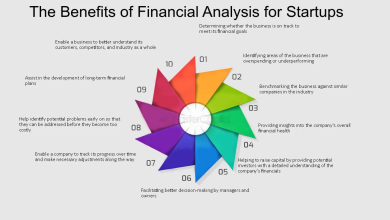5 Financial Habits to Develop as You Start Your First Job

Starting your first job marks the initiation of a new life phase – gaining financial autonomy. If you have just started your first job, congratulations are in order! You’ve transitioned from receiving pocket money to earning your own income. Although the allure of spending this money is high right now, you must start financial planning right away.
Commencing financial planning early sets the stage for healthy financial habits and provides your investments with the gift of time, which can yield significant growth, and help in fulfilling your financial objectives throughout your life. These decisions culminate into retirement investment plans, finally wrapping up your fruitful professional journey. Taking the initial step is often the hardest part, as many struggle with where or how to commence.
5 Tips for Beginners to Develop Healthy Financial Habits
Inculcating financial discipline from the outset makes saving a regular part of your routine. This aids in preparing for unforeseen circumstances and fosters a readily available fund for upcoming milestones. Here are five essential guidelines to set you on your way:
1. Define your Financial Goals
The adage ‘Failing to Plan is Planning to Fail’ underscores the significance of planning like no other. Planning provides guidance, facilitates decision-making, and spurs action. Initiating financial planning early affords you the luxury to take calculated investment risks, learn from potential setbacks, and benefit from the compounding effect.
Define your objectives by creating a personal financial calendar for the year. Set financial targets and chart out how to attain them. Creating a roadmap helps you understand your goals and the actions required to achieve them. You can set objectives like saving for education, a trip, buying a car, or starting a business.
2. Start Saving and Budgeting
As you embark on your earning journey, it’s tempting to splurge all your money on things you desire. However, adhering to the ‘Save First’ mantra empowers you to manage your finances wisely and avoid frivolous expenditures.
Establish a savings account, allocate a portion of your income towards savings each month, and create a well-balanced savings strategy. Consider automating savings by earmarking at least 25% of your salary. Scrutinise your expenses to discern spending patterns and give precedence to essential purchases over non-essential ones. This approach sets the stage for a secure financial future.
3. Begin Establishing a Strong Credit Score
If you eventually plan to secure a loan for a home or a car, building your credit history is imperative.
You may opt for a credit card or a small loan to establish credit. When used responsibly, a credit card can effectively build your credit. Many banks offer excellent entry-level credit cards to assist individuals in building credit.
However, it’s important to remember a few tips when using your credit card. Exceeding 30% of your credit limit can potentially harm your score. Abstaining from overspending beyond your means is crucial. While paying the minimum required amount keeps your account in good standing, paying in full by the due date saves you on interest.
4. Obtain Insurance Coverage
Anticipate the unpredictable with comprehensive health and life insurance policies. Insure yourself at a young age for lower premiums and tax benefits. Health insurance safeguards your savings during medical emergencies, while life insurance secures financial stability for dependents.
Life insurance is vital for securing your financial future and shielding your loved ones from unforeseen circumstances. Procuring a term policy early in life entails an ‘x’ premium, while the same policy in 5-10 years could cost ‘2x’ or even ‘3x’. By investing in a policy at a young age, you can acquire a larger life cover at a lower premium, affording you surplus funds for essential needs in the future.
Moreover, popular plans like unit-linked insurance plans or ULIPs offer the dual benefit of insurance coverage and equity-linked advantages. Thus, you can insure yourself while building a fund – all simultaneously. ULIPs are also quite popularretirement investment plans. For all you life insurance needs, you can check out a reputable insurer like Edelweiss Tokio Life Insurance, which has a plethora of ULIPs, Term Plans and Guaranteed Income Plans for every requirement and budget.
5. Commence Investing in Your Future
Don’t postpone planning for the future until you’re in your 30s. Merely saving money may not lead to substantial growth as inflation gradually diminishes its value. Consider this scenario: You diligently save each month, depositing it in a savings account that offers a 3% annual interest rate. However, if inflation stands at 6%, the Rs 100 item you could purchase a year ago now costs Rs 106. Your saved Rs 100, now grown to Rs 103 with interest, falls short due to the escalating cost of living.
Therefore, it is crucial to invest your money, enabling it to generate additional returns and outpace inflation. The encouraging news is that various financial instruments are available, tailored to suit your preferences and risk tolerance. These avenues empower you to make your money work harder for you.
A straightforward approach for a novice is categorising goals into short-term and long-term segments. You can choose specific investment plans like ULIPs, Mutual funds, Equity, PPF, etc., based on your goals, investment horizon, and risk tolerance.
To craft the best investment plan, online calculators aid in determining your premium payments/monthly investment amounts and anticipated returns on them.
Conclusion
All worthwhile habits yield results over time. The same holds true for financial planning and investment. Defining your goals, adopting diligent budgeting habits, establishing a credit history, and preparing for contingencies allow you to take charge of your future. Moreover, with an early start in the investment arena, you can leverage the advantages of compounding and amass a substantial fund by the time you retire.




